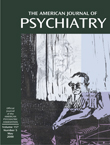Abstract
OBJECTIVE: This study aimed to describe the natural course of DSM-III-R alcohol disorders as a function of age at first alcohol use and to investigate the influence of early use as a risk factor for progression to the development of alcohol disorders, exclusive of the effect of confounding influences. METHOD: Data were obtained from a community sample (N=5,856) of lifetime drinkers participating in the 1990–1991 Mental Health Supplement of the Ontario Health Survey.RESULTS: Survival analyses revealed a rapid progression to alcohol-related harm among those who reported having their first drink at ages 11–14. After 10 years, 13.5% of the subjects who began to drink at ages 11 and 12 met the criteria for a diagnosis of alcohol abuse, and 15.9% had a diagnosis of dependence. Rates for subjects who began to drink at ages 13 and 14 were 13.7% and 9.0%, respectively. In contrast, rates for those who started drinking at ages 19 and older were 2.0% and 1.0%. Unexpectedly, a delay in progression to harm was observed for the youngest drinkers (ages 10 and under). Hazard regression analyses revealed a nonlinear effect of age at first alcohol use, marked by an elevated risk of developing disorders among subjects first using alcohol at ages 11–14. CONCLUSIONS: First use of alcohol at ages 11–14 greatly heightens the risk of progression to the development of alcohol disorders and therefore is a reasonable target for intervention strategies that seek to delay first use as a means of averting problems later in life.



